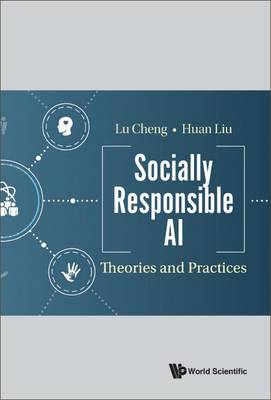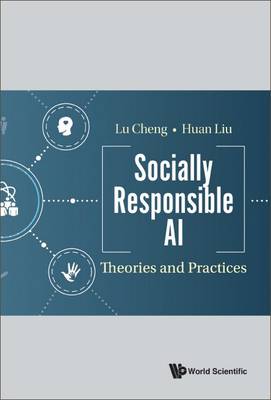
- Afhalen na 1 uur in een winkel met voorraad
- Gratis thuislevering in België vanaf € 30
- Ruim aanbod met 7 miljoen producten
- Afhalen na 1 uur in een winkel met voorraad
- Gratis thuislevering in België vanaf € 30
- Ruim aanbod met 7 miljoen producten
Zoeken
Omschrijving
In the current era, people and society have grown increasingly reliant on artificial intelligence (AI) technologies. AI has the potential to drive us towards a future in which all of humanity flourishes. It also comes with substantial risks for oppression and calamity. In response, researchers and organizations have been working to publish principles and develop AI regulations for the responsible use of AI in consequential application domains. However, these theoretically formulated principles and regulations also need to be turned into actionable algorithms to materialize AI for good.This book introduces a unified perspective of Socially Responsible AI to help bridge conceptual AI principles to responsible AI practice. It begins with an interdisciplinary definition of socially responsible AI and the AI responsibility pyramid. Existing efforts seeking to materialize the mainstream responsible AI principles are then presented. The book also discusses how to leverage advanced AI techniques to address the challenging societal issues through Protecting, Informing, and Preventing, and concludes with open problems and challenges.This book serves as a convenient entry point for researchers, practitioners, and students to understand the problems and challenges of socially responsible AI, and to identify how their areas of expertise can contribute to making AI socially responsible.
Specificaties
Betrokkenen
- Auteur(s):
- Uitgeverij:
Inhoud
- Aantal bladzijden:
- 196
- Taal:
- Engels
Eigenschappen
- Productcode (EAN):
- 9789811266621
- Verschijningsdatum:
- 5/06/2023
- Uitvoering:
- Hardcover
- Formaat:
- Genaaid
- Afmetingen:
- 152 mm x 229 mm
- Gewicht:
- 430 g

Alleen bij Standaard Boekhandel
+ 238 punten op je klantenkaart van Standaard Boekhandel
Beoordelingen
We publiceren alleen reviews die voldoen aan de voorwaarden voor reviews. Bekijk onze voorwaarden voor reviews.











